Filter by
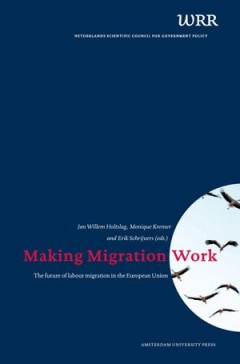
Making Migration Work
The complexion of labour migration in the European Union (EU) has altered in recent years. Not only has there been a shift in the length of time labour migrants spend abroad, but the nature, scale and direction of the migration flows have also changed dramatically. The enlargements of the EU in 2004 and 2007 were influential in this respect. A growing economy and large wage gaps encouraged a la…
- Edition
- -
- ISBN/ISSN
- 9789089645579
- Collation
- -
- Series Title
- -
- Call Number
- 351.81 HOL m
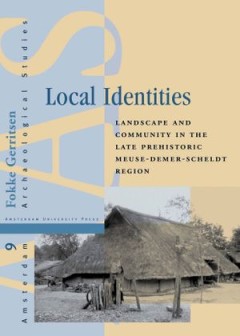
Local Identities: Landscape and Community in the Late Prehistoric Meuse-Demer…
Investigates how small groups - households and local communities - constitute and represent their social identity by ordering the landscape in which they dwell. The author develops a new theoretical and empirical perspective that deals with many of the practices that create collective senses of identity and belonging. These include house building and habitation, structured deposition, cremation…
- Edition
- -
- ISBN/ISSN
- 9789053565889
- Collation
- -
- Series Title
- -
- Call Number
- 301 GER l
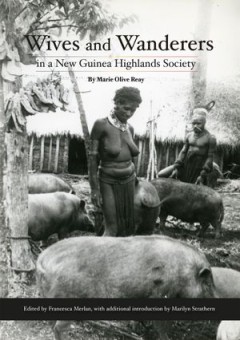
Wives and Wanderers in a New Guinea Highlands Society Women’s lives in the…
Wives and Wanderers in a New Guinea Highlands Society brings to the reader anthropologist Marie Reay’s field research from the 1950s and 1960s on women’s lives in the Wahgi Valley, Central Highlands of Papua New Guinea. Dramatically written, each chapter adds to the main story that Reay wanted to tell, contrasting young girls’ freedom to court and choose partners, with the constraints (an…
- Edition
- -
- ISBN/ISSN
- 9781925022162
- Collation
- -
- Series Title
- -
- Call Number
- -
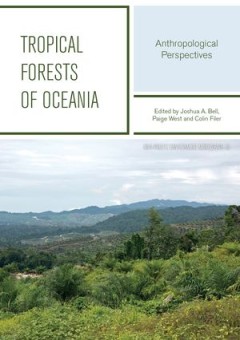
Tropical Forests Of Oceania Anthropological Perspectives
The tropical forests of Oceania are an enduring source of concern for indigenous communities, for the migrants who move to them, for the states that encompass them within their borders, for the multilateral institutions and aid agencies, and for the non-governmental organisations that focus on their conservation. Grounded in the perspective of political ecology, contributors to this volume appr…
- Edition
- -
- ISBN/ISSN
- 9781925022728
- Collation
- -
- Series Title
- -
- Call Number
- -
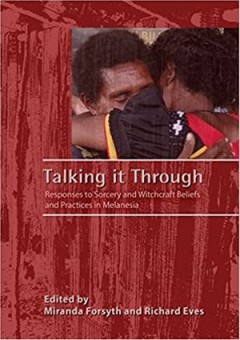
Talking it Through: Responses to Sorcery and Witchcraft Beliefs and Practices…
Sorcery and witchcraft practices and beliefs are pervasive across Melanesia. They are in part created by, and give rise to, a wide variety of poor social and developmental outcomes. These include uneven economic development, low public health, lack of social cohesion, crime, fear and insecurity. A further very visible problem is the attacks on men and women who are accused of being practitioner…
- Edition
- -
- ISBN/ISSN
- 9781925021578
- Collation
- -
- Series Title
- -
- Call Number
- 301 EVE t
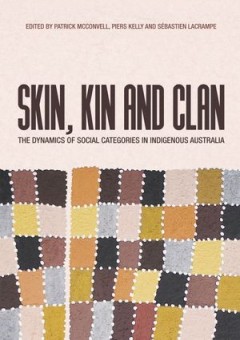
Skin, Kin and Clan: The dynamics of social categories in Indigenous Australia
Australia is unique in the world for its diverse and interlocking systems of Indigenous social organisation. On no other continent do we see such an array of complex and contrasting social arrangements, coordinated through a principle of ‘universal kinship’ whereby two strangers meeting for the first time can recognise one another as kin. For some time, Australian kinship studies suffered f…
- Edition
- -
- ISBN/ISSN
- 9781760461638
- Collation
- -
- Series Title
- -
- Call Number
- 301 SKI s
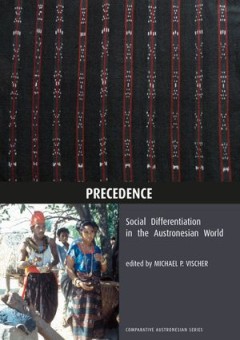
Precedence: Social Differentiation in the Austronesian World
This collection of papers is the sixth volume in the Comparative Austronesian series. The papers that comprise this volume examine the concept of precedence as a form of local discourse and as a mechanism for ordering status, at different levels, within specific Austronesian-speaking societies. This is the first volume of its kind to focus entirely on precedence and to provide an explication of…
- Edition
- -
- ISBN/ISSN
- 9781921536472
- Collation
- -
- Series Title
- -
- Call Number
- 301 VIS p
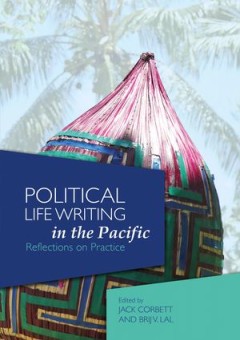
Political Life Writing in the Pacific: Reflections on Practice
This book aims to reflect on the experiential side of writing political lives in the Pacific region. The collection touches on aspects of the life writing art that are particularly pertinent to political figures: public perception and ideology; identifying important political successes and policy initiatives; grappling with issues like corruption and age-old political science questions about le…
- Edition
- -
- ISBN/ISSN
- 9781925022612
- Collation
- -
- Series Title
- -
- Call Number
- 301 COR p
Tracking Rural Change Community, Policy and Technology in Australia, New Zea…
A key, intensifying change affecting rural areas in the last few decades has been a decline in the proportion of national populations whose principal livelihood is farming. The corresponding re-distribution of population has typically resulted in a net population loss to rural areas, and diversification of rural activity. The corporatization and technological modification of food production has…
- Edition
- -
- ISBN/ISSN
- 9781921536533
- Collation
- -
- Series Title
- -
- Call Number
- -
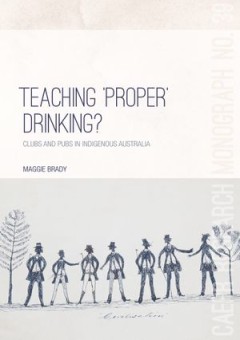
Teaching ‘Proper’ Drinking? Clubs and pubs in Indigenous Australia
"In Teaching ‘Proper’ Drinking?, the author brings together three fields of scholarship: socio-historical studies of alcohol, Australian Indigenous policy history and social enterprise studies. The case studies in the book offer the first detailed surveys of efforts to teach responsible drinking practices to Aboriginal people by installing canteens in remote communities, and of the purchase…
- Edition
- -
- ISBN/ISSN
- 9781760461577
- Collation
- -
- Series Title
- -
- Call Number
- -
 Computer Science, Information & General Works
Computer Science, Information & General Works  Philosophy & Psychology
Philosophy & Psychology  Religion
Religion  Social Sciences
Social Sciences  Language
Language  Pure Science
Pure Science  Applied Sciences
Applied Sciences  Art & Recreation
Art & Recreation  Literature
Literature  History & Geography
History & Geography